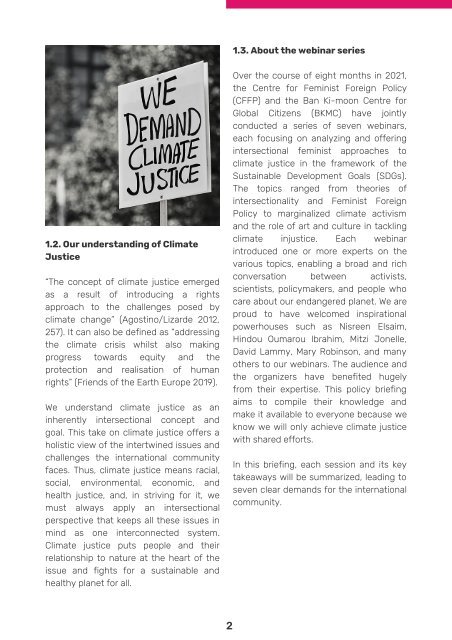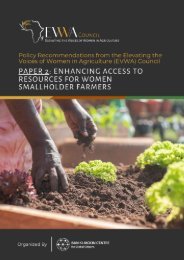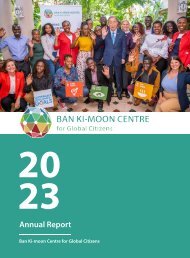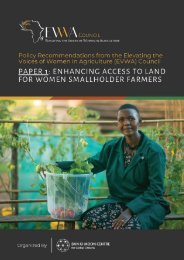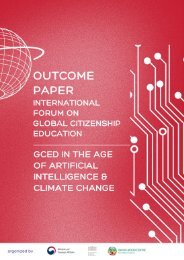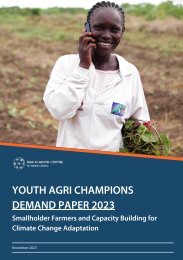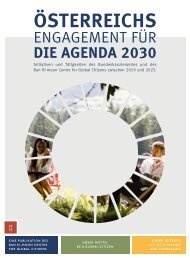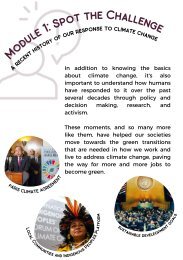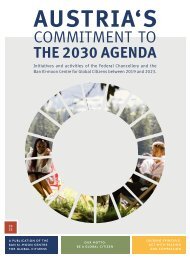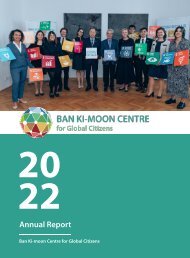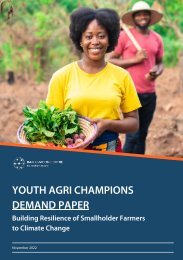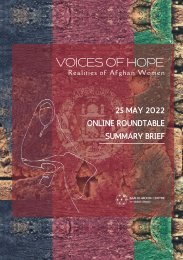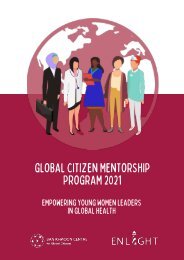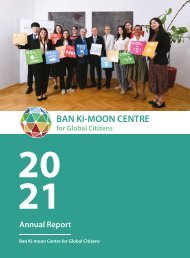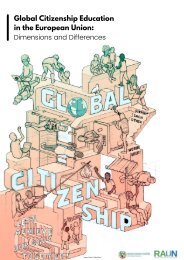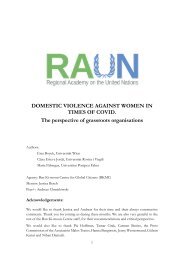Policy Brief - Climate Justice 4 All
Create successful ePaper yourself
Turn your PDF publications into a flip-book with our unique Google optimized e-Paper software.
1.3. About the webinar series<br />
1.2. Our understanding of <strong>Climate</strong><br />
<strong>Justice</strong><br />
“The concept of climate justice emerged<br />
as a result of introducing a rights<br />
approach to the challenges posed by<br />
climate change” (Agostino/Lizarde 2012,<br />
257). It can also be defined as “addressing<br />
the climate crisis whilst also making<br />
progress towards equity and the<br />
protection and realisation of human<br />
rights” (Friends of the Earth Europe 2019).<br />
We understand climate justice as an<br />
inherently intersectional concept and<br />
goal. This take on climate justice offers a<br />
holistic view of the intertwined issues and<br />
challenges the international community<br />
faces. Thus, climate justice means racial,<br />
social, environmental, economic, and<br />
health justice, and, in striving for it, we<br />
must always apply an intersectional<br />
perspective that keeps all these issues in<br />
mind as one interconnected system.<br />
<strong>Climate</strong> justice puts people and their<br />
relationship to nature at the heart of the<br />
issue and fights for a sustainable and<br />
healthy planet for all.<br />
Over the course of eight months in 2021,<br />
the Centre for Feminist Foreign <strong>Policy</strong><br />
(CFFP) and the Ban Ki-moon Centre for<br />
Global Citizens (BKMC) have jointly<br />
conducted a series of seven webinars,<br />
each focusing on analyzing and offering<br />
intersectional feminist approaches to<br />
climate justice in the framework of the<br />
Sustainable Development Goals (SDGs).<br />
The topics ranged from theories of<br />
intersectionality and Feminist Foreign<br />
<strong>Policy</strong> to marginalized climate activism<br />
and the role of art and culture in tackling<br />
climate injustice. Each webinar<br />
introduced one or more experts on the<br />
various topics, enabling a broad and rich<br />
conversation between activists,<br />
scientists, policymakers, and people who<br />
care about our endangered planet. We are<br />
proud to have welcomed inspirational<br />
powerhouses such as Nisreen Elsaim,<br />
Hindou Oumarou Ibrahim, Mitzi Jonelle,<br />
David Lammy, Mary Robinson, and many<br />
others to our webinars. The audience and<br />
the organizers have benefited hugely<br />
from their expertise. This policy briefing<br />
aims to compile their knowledge and<br />
make it available to everyone because we<br />
know we will only achieve climate justice<br />
with shared efforts.<br />
In this briefing, each session and its key<br />
takeaways will be summarized, leading to<br />
seven clear demands for the international<br />
community.<br />
2


